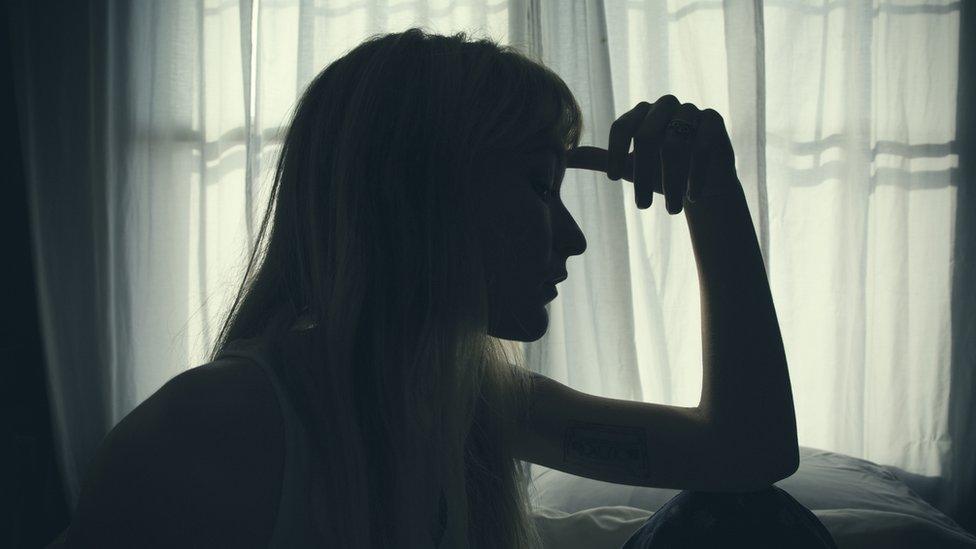Court case delays 'felt like banging my head on wall'
- Published
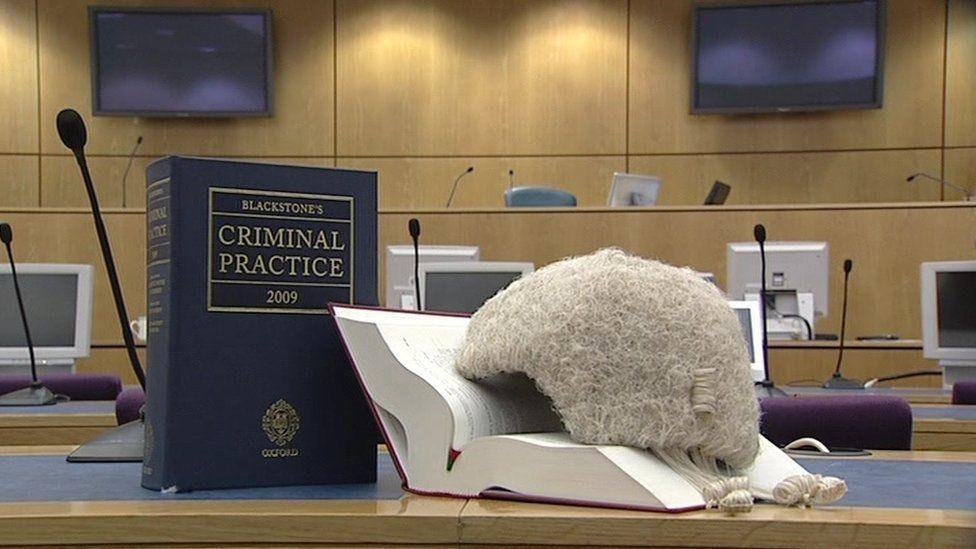
Inspectors found 54% of files prepared by the PSNI did not meet, or only partially met standards, and there was a similar figure for PPS files
A man who finally secured a child cruelty conviction against his parents eight years after taking the case has said he would not have pursued it if he had known it was going to take so long.
Dean Kane said his experience of the criminal justice system was like "banging your head against a wall".
He told BBC News NI that the process had taken a toll on his mental health.
It comes as an inspection body found that evidence files of "poor quality" were causing delays in the system.
Criminal Justice Inspection Northern Ireland (CJINI) said "a fundamental reset" was required.
It examined 200 files prepared by the police and Public Prosecution Service (PPS) and found that about half of those did not meet the agreed standards.
When a crime is reported and sufficient evidence is collected the police send a file to the PPS.
The PPS then considers that and create its own file in order to reach a decision. CJINI states that it is critical that those meet agreed standards of quality.
"Getting this right can reduce delay and deliver better outcomes for victims and witnesses," said CJINI chief inspector Jacqui Durkin.
Poor files can have "significant consequences", including delaying the progression of cases.
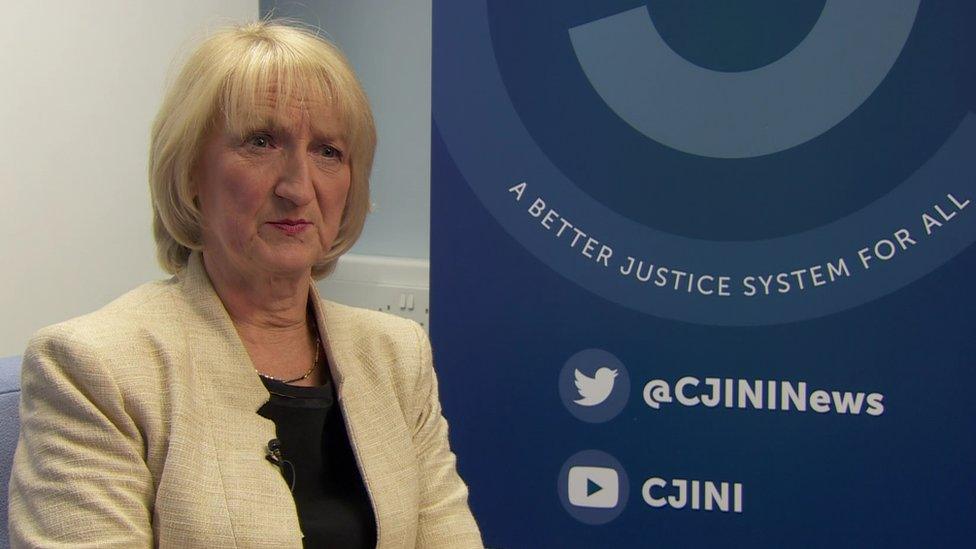
Police and prosecutors need to focus on getting the basics right in evidence files, says Jacqui Durkan
When inspectors looked at police practice they found 54% of files prepared for crown court cases "did not meet, or only partially met, the file build standards".
It was a similar figure for the PPS.
In respect of magistrates' court cases there were issues with about 40% of files.
'You're just kept in the dark'
Last month Mr Kane's parents were convicted of child cruelty against him but it was first reported to the police over eight years ago.
He told BBC News NI that the process was slow and the communication he received was not good enough.
"Would I do it again? Probably not. Would I advise someone to even do it? Probably not, given how appalling I believe my case was handled," he said.
Speaking about how felt felt during the process he said: "My head's a mess, I don't know where my life's going. I don't know where the court case is going. I was getting no clarity, my life's on hold.
"My mental health is plummeting, everything's spiralling. Anywhere I turn to I'm not getting answers."
He added that he felt the system kept people in the dark as a victim, no matter the outcome of their case.
"The whole system from start to finish, the lack of being updated, the lack of knowledge that you have around it - you're just kept in the dark", he said.
"It's no way to be living your life."
When his case ended, with him walking out of court knowing he would not have to return, he felt deflated.
"That's the only way to describe it."
'Focus on getting basics right'
Ms Durkin said both the police and the PPS needed to deliver improvement.
"This inspection shows each organisation needs to focus on getting the basics right at each stage of case progression," she said.
"Quality needs built in at every stage for each police officer and prosecutor involved in a case so better outcomes can be delivered for victims and witnesses."
She added that clear targets needed to be introduced, as well as meaningful monitoring of performance.
The report repeated recommendations it made after a similar inspection in 2015.
In a statement the PPS acknowledged that delay "is one of the biggest challenges facing the justice system".
It added that the problem has been "exacerbated" by the impact of the Covid-19 pandemic and by funding pressures.
"We have made significant efforts to improve timeliness in recent years and we are working with all our criminal justice partners on how further progress can best be delivered," said PPS deputy director Michael Agnew.
"While challenges remain, we are pleased that this report has acknowledged some of the positive work being done by the PPS."
The stories of victims who have found themselves caught in the slow-moving criminal justice system can be heard in a BBC Northern Ireland Spotlight programme on BBC iPlayer from Tuesday morning and broadcast on BBC One Northern Ireland at 10:40 BST on Tuesday.
- Published3 August 2022
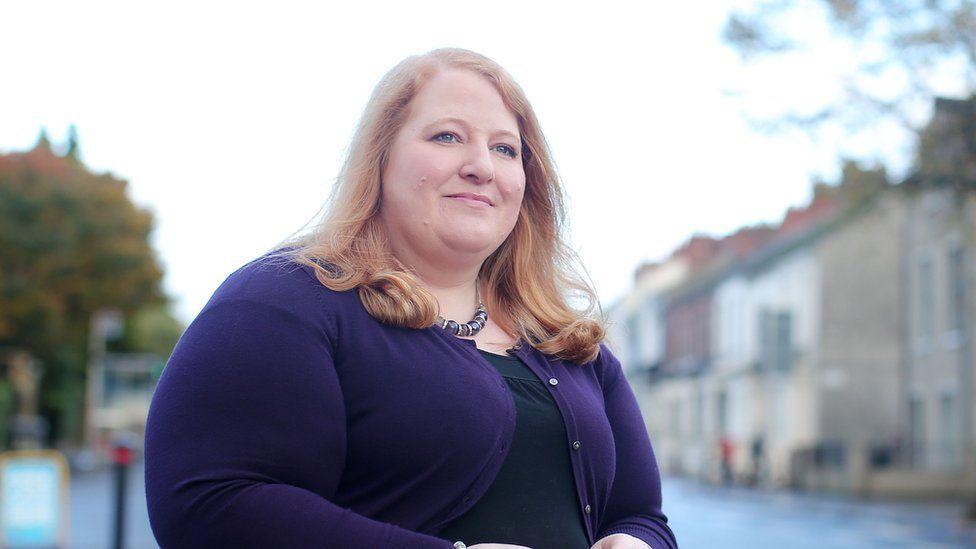
- Published15 July 2020
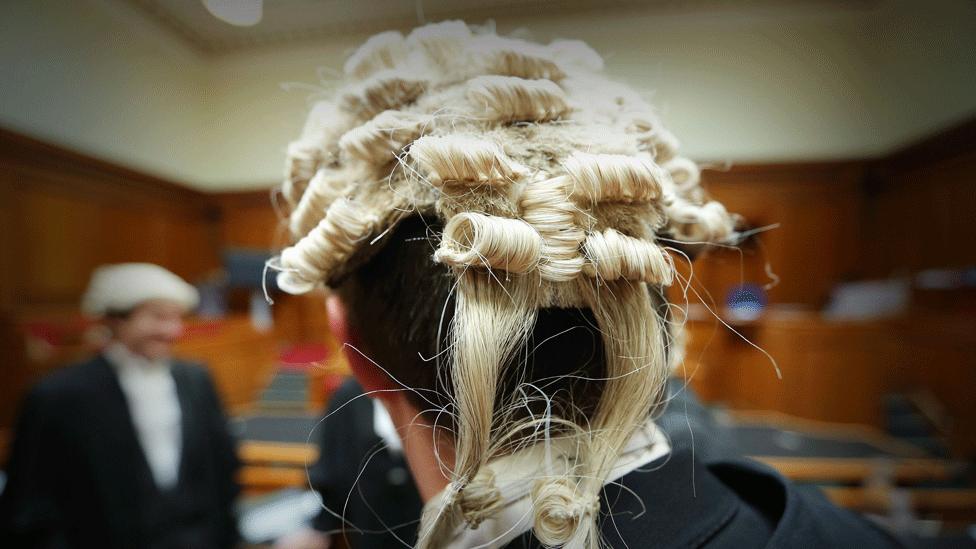
- Published21 June 2022
